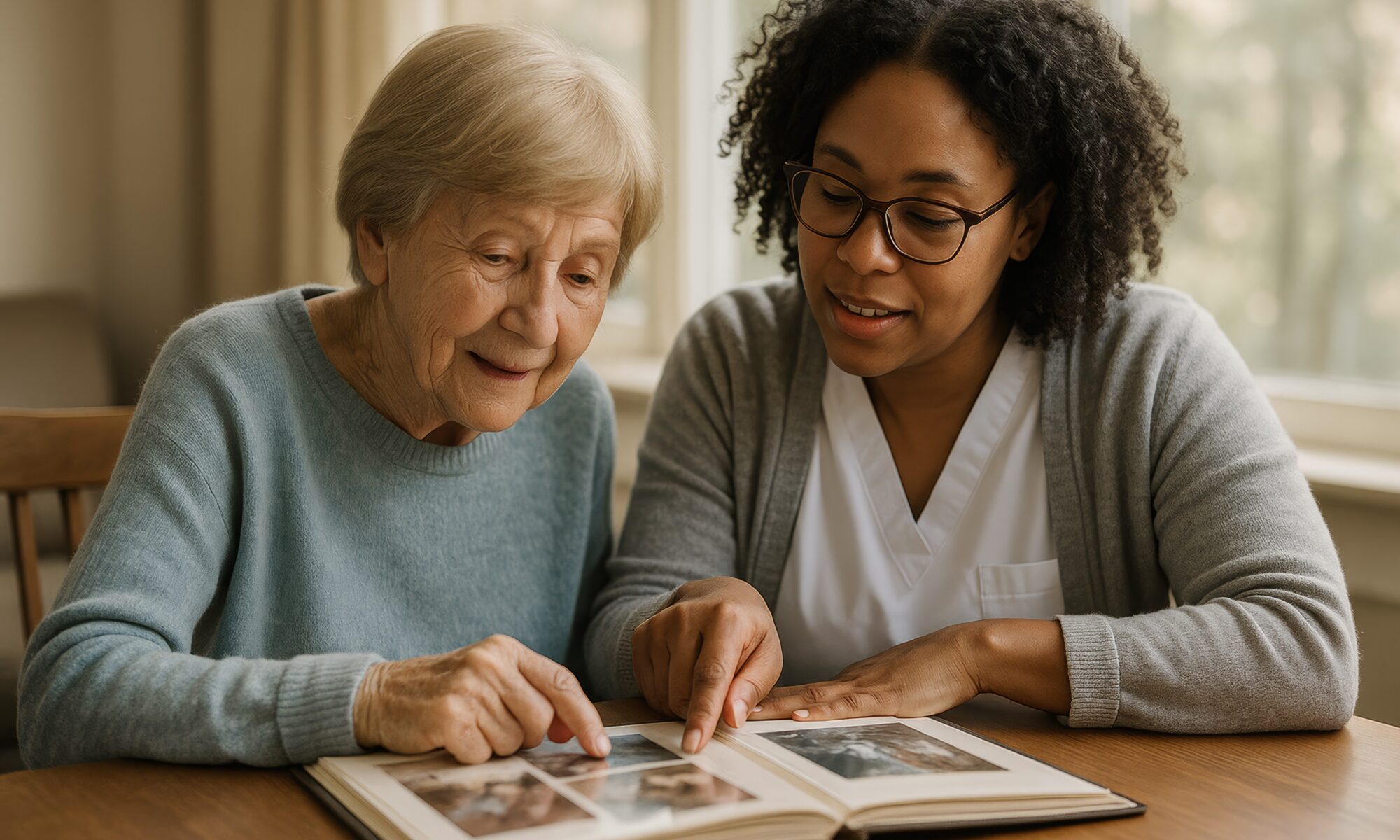
Table of Content
Loneliness affects millions of seniors worldwide, creating serious health risks that extend far beyond temporary sadness. Companion care offers a meaningful solution that addresses both the emotional and practical needs of older adults while helping them maintain independence and dignity in their own homes.
Emotional Support and Mental Health Benefits
Companion care provides seniors with regular social interaction that can dramatically enhance their emotional wellbeing. Having a dedicated companion creates opportunities for meaningful conversations, shared activities, and genuine human connection that many isolated seniors desperately need.
Regular companionship can reduce symptoms of depression and anxiety that commonly accompany loneliness. When seniors have someone to talk with about their concerns, memories, or daily experiences, they feel heard and valued. This emotional validation can significantly boost their overall mood and outlook on life.
For seniors with dementia or cognitive decline, companion care becomes even more crucial. Companions trained in dementia care understand how to communicate effectively and provide reassurance when clients experience confusion or repeated questioning. They can implement strategies like:
- Using simple, concrete language during conversations
- Validating feelings rather than correcting confused statements
- Providing consistent routines that reduce anxiety
- Creating visual cues and memory aids to support daily activities
Aging in place can present a few challenges for seniors living with dementia. However, they can still live independently at home with the help of professional dementia care. Annapolis families can rely on Assisting Hands Home Care to provide their elderly loved ones with mental and social stimulation, timely medication reminders, assistance with meal prep, and much more. Our caregivers are available around the clock to help your loved one live a happier and healthier life.
Physical Health and Safety Advantages
Companion care extends beyond emotional support to include practical assistance that promotes better physical health. Companions can encourage seniors to maintain regular meal schedules, stay hydrated, and take medications as prescribed—tasks that isolated seniors often neglect.
Regular companionship also motivates seniors to stay more physically active. Whether it’s taking walks, doing light exercises, or simply moving around the house more frequently, having someone present encourages movement that might otherwise be avoided. This increased activity helps seniors maintain mobility, balance, and overall physical function.
Safety monitoring represents another crucial benefit. Companions can identify potential hazards in the home environment and prevent falls or accidents. They also serve as an extra set of eyes to notice changes in health status that might require medical attention.
Seniors can face a variety of challenges as they age, many of which can be mitigated with the help of professional in-home caregivers who provide high-quality home care. Trust Assisting Hands Home Care to help your elderly loved one age in place safely and comfortably.
Cognitive Stimulation and Mental Engagement
Meaningful mental stimulation plays a vital role in maintaining cognitive function as we age. Companion care provides regular opportunities for brain engagement through conversations, games, puzzles, and shared activities that keep the mind active and alert.
Companions can help seniors pursue hobbies and interests that bring joy and purpose to their daily lives. Whether it’s reading together, working on crafts, listening to music, or looking through photo albums, these activities provide cognitive stimulation while creating positive experiences.
For seniors experiencing memory challenges, companions can implement memory-supporting strategies such as:
- Creating and maintaining memory books with family photos and important information
- Establishing consistent daily routines that reduce confusion
- Using gentle reminders and cues to support independence
- Engaging in reminiscence activities that tap into long-term memories
Building Connections to the Broader Community
Companion care often serves as a bridge connecting seniors to their broader communities and support networks. Companions can facilitate communication with family members, coordinate social activities, and encourage participation in community programs designed for older adults.
Many companion care providers also offer respite support for family caregivers, allowing adult children and spouses to take breaks while knowing their loved ones receive high-quality care and companionship. This support strengthens the entire family care network and prevents caregiver burnout.
Enhanced Quality of Life and Independence
Perhaps most importantly, companion care helps seniors maintain their independence while receiving the support they need. Rather than moving to institutional care, seniors can remain in familiar surroundings with assistance tailored to their specific needs and preferences.
Companions provide flexible support that adapts to changing circumstances. On days when seniors feel energetic and capable, companions can focus more on social interaction and enjoyable activities. When seniors need more assistance, companions can provide additional practical support while maintaining dignity and respect.
This personalized approach helps seniors feel more in control of their lives and decisions. They can maintain their routines, keep their belongings nearby, and continue participating in community activities with appropriate support.
Annapolis senior home care experts are available to provide high-quality care to seniors on an as-needed basis. From assistance with mobility and exercise to providing transportation to the doctor’s office and social events, there are a variety of ways professional caregivers can help your aging loved one continue to live independently. Call Assisting Hands Home Care to learn more about our flexible and customizable senior care plans.
